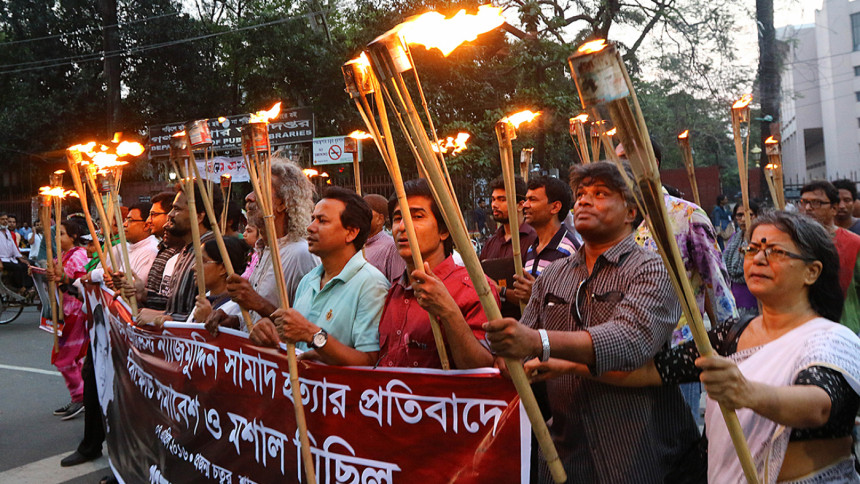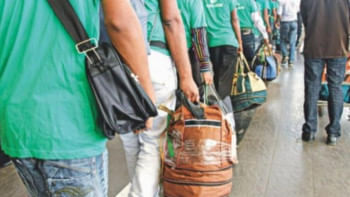UN wants Bangladesh to protect secular activists

United Nations High Commissioner for Human Rights Zeid Ra'ad Al Hussein has urged the Bangladesh government to take urgent, concerted measures to ensure the protection of all those being threatened by extremists 'operating in the country'.
Hussein made the call saying they are alarmed by the violent killing of yet another blogger in Bangladesh - Nazimuddin Samad.
"We call on political and religious leaders to unequivocally condemn such murders, and on the authorities to swiftly investigate and bring the perpetrators to justice," he was quoted as saying in a statement received here from Geneva on Friday.
Meanwhile, spokesperson for the UN High Commissioner for Human Rights Ravina Shamdasani, in a statement, renewed their call to the government of Bangladesh, as a first step forward, to halt all executions and institute a moratorium on the use of the death penalty.
READ MORE: Their worst fear comes true
Bangladesh, she said, reportedly has more than 1,200 prisoners on death row and in March this year alone at least 13 people were reportedly sentenced to death in separate murder cases in four districts in Bangladesh.
"We're concerned about the latest death sentences handed down against two men by the Bangladesh International Crimes Tribunal, particularly given continued concerns in relation to international due process and fair trial standards," said the spokesperson.
War criminal and leader of Jamaat-e-Islami, Motiur Rahman Nizami has filed a review petition against his death warrant, due to be heard on Sunday, April 10, following a one-week deferral.
This is the last stage of the legal process in appealing against his execution, other than to seek a presidential pardon, and we hope it will be considered thoroughly by the court, he added.
Nizami was sentenced to death on charges of planning, ordering and committing murders and rapes, among other serious crimes during the 1971 war of independence.
Last month, on March 8, the Supreme Court also upheld the death sentence against Mir Quasem Ali, another war criminal and Jamaat-e-Islami leader. Mir Quasem Ali had been sentenced to death in November 2014 by the same tribunal.
Since its inception in 2010, the tribunal has delivered at least 17 verdicts, the majority of which have resulted in the imposition of the death penalty. So far, four men have been executed.
"The UN opposes the use of the death penalty in all circumstances, no matter the gravity of the crime committed and even if the most stringent fair trial standards were respected," said the Spokesperson.
The UN rights body renewed their call to the government of Bangladesh to respect its obligations under the International Covenant on Civil and Political Rights (ICCPR), to which it acceded in 2000.
Article 14 of the ICCPR details the right to a fair trial. The imposition of a death sentence following a trial in which these provisions have not been respected constitutes a violation of the right to life, it said.


 For all latest news, follow The Daily Star's Google News channel.
For all latest news, follow The Daily Star's Google News channel. 




Comments